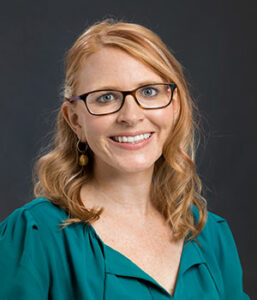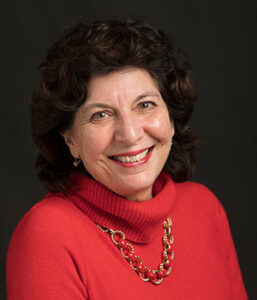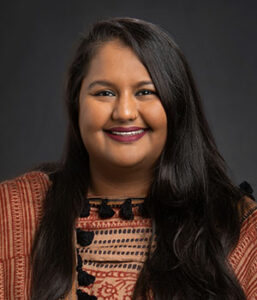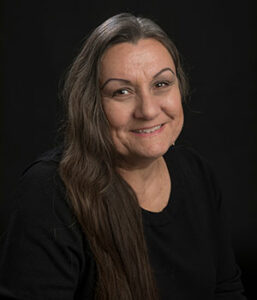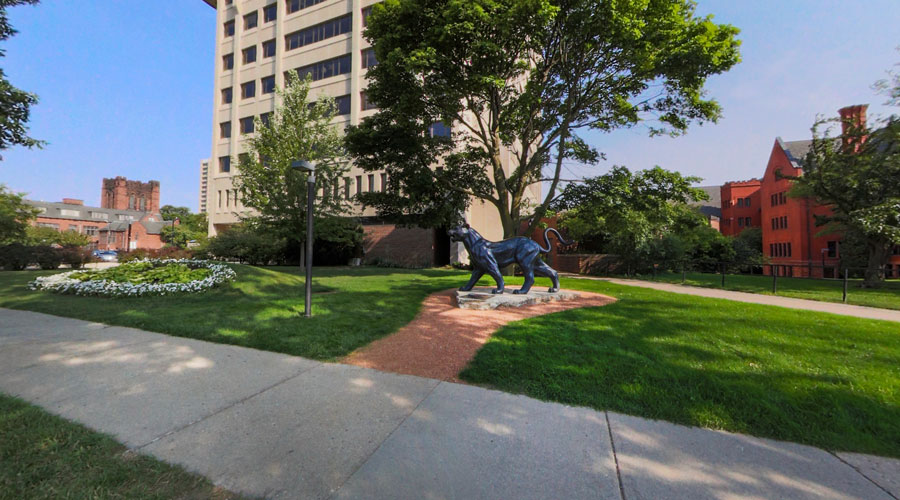Educational Psychology: Clinical Mental Health Counseling MS
Counselors change lives. That’s why we’re committed to training multiculturally competent counselors. As a Clinical Mental Health Counseling master’s graduate, you’ll be ready to use your skills to help clients in a wide range of diverse settings.
The Clinical Mental Health Counseling concentration prepares students to become licensed professional counselors. Our alumni work in mental health clinics, counseling centers, universities and more.
Program Type
Master’s
Program Format
On Campus
Why Choose Our Program?
- Accreditation: Our program is accredited by the Master’s in Psychology and Counseling Accreditation Council (MPCAC).
- Commitment to Diversity: The Department of Educational Psychology has more than 50 years of experience training multiculturally competent counselors and psychologists.
- Location: Get access to a variety of internship and networking opportunities, thanks to our location. Campus is 10 minutes from downtown Milwaukee and 90 minutes from Chicago.
- Research: Opportunities to work alongside faculty as an integral member of their research teams. You may also have the opportunity to present your work at national conferences.
- Licensure: 85% of our students become licensed professional counselors in Wisconsin within two years of graduation.

The Clinical Mental Health Counseling master’s concentration prepares students to become licensed counselors. Students train in the science and practice of assessment, diagnosis and evaluation. They work to be fully versed in the biological, social and development bases of behavior. They are also expected to learn and follow the latest evidence-based approaches to individual and group formats. Graduating students are ethical and multiculturally competent counselors ready to help clients.
Counseling Handbook
For more information about the program, please see the Counseling Master’s Handbook (PDF).
Student Data
| Student data for the 2022-2023 academic year (Clinical Mental Health Counseling) | |
|---|---|
| Number of students who applied to the programs: | 128 |
| Number of students admitted to the programs: | 90 |
| Number of students who accepted offer of admission to the programs: | 34 |
| Number of students enrolled in the programs: | 97 |
| Number of students who graduated the programs: | 35 |
Career Resources
Program Requirements
Clinical Mental Health Counseling master’s students arrange their program of studies so that the 60 credits earned toward a master’s degree will meet Wisconsin state certification requirements.
Please note that summer enrollment is required and, although most courses are in-person, the following are typically offered in an asynchronous online format: COUNS 702, COUNS 774, COUNS 775, COUNS 820, COUNS 904, ED PSY 640.
To request access to syllabi from previous semesters, please contact soeinfo@uwm.edu.
Note: Students interested in licensure in another state must consult that state’s licensing requirements to ensure they have the required courses for that state.
Note: Effective Sept. 2021 for students graduating in May 2022 or later, students in dual certification must take BOTH capstone exams for each concentration (Praxis 2 AND CPCE).
Application Process
All applications must be completed online through the UWM Graduate School’s Panthera Application System.
- Priority Deadline: For applicants who wish to be considered for available types of financial assistance available on campus, we recommend completed applications by Nov. 15 for admission the following Fall.
- Final Deadline: Final application deadline is Feb. 15 for Fall admission. Please note that this date is firm, despite the Graduate School’s application “lock date.”
Required Materials for Application
In addition to the minimum requirements for admission stipulated by the UWM Graduate School, the Educational Psychology MS – Concentration in Clinical Mental Health Counseling program also requires:
1.) A minimum cumulative undergraduate grade point average of 3.0 (vs. 2.75 required by the graduate school) on a 4.0 scale. Those whose undergraduate GPA is below 3.0 must provide evidence of ability to succeed in graduate study through at least one of the following:
- GPA of at least 3.0 during the last two years of the baccalaureate program (calculated on a minimum of 48 credits).
- A graduate degree with a minimum 3.0 GPA.
- Submission of official score reports from the Graduate Record Examination, the Graduate Management Admission Test or the Miller Analogies Test that indicate competencies in areas related to the proposed graduate program. To be considered official, these scores must be sent directly from the testing agency to UWM and must be received prior to admission.
Depending on the applicant pool, some applicants may be admitted who do not meet the required GPA. Please see stipulations under the Admission Procedures section of this document.
2.) Three letters of recommendation:
- Letters that speak to your scholarly capabilities are desirable.
- Letters submitted on letterhead are preferred
- Letters must be submitted through the application’s electronic recommendation feature by the recommenders themselves. (Recommenders receive an email with a link to upload their letter directly to your Panthera application when you submit the request in the application.)
- Letters uploaded or sent by the applicant will not be accepted.
3.) Reasons statement. A 1-2 page statement that includes your long-term goals and reasons for seeking a counseling degree.
Note: Although not required, it is strongly recommended that you upload a resume or curriculum vita.
- This document must be uploaded to the Additional Resources section of your Panthera Application.
GRE scores are not required, though you are welcome to submit your scores if you wish to do so.
Admission Procedures
The department must receive all materials by the Final Deadline of Feb. 15.
- Shortly after the Feb. 15 deadline, the Counseling Area Admissions Committee will meet and review the applications. Applicants will be notified of the committee’s decision generally within four weeks after the deadline.
- The Counseling Admissions Committee carefully reviews the following information as part of the decision-making process for recommending admission for students to graduate school: GPA, letters of recommendation and the applicant’s reason statement from the Application Questions section of the Panthera application. Applicants are urged to take special care in describing long range goals, how they see themselves fitting into UWM’s program, which has an urban and multicultural emphasis, and relating experiences that influenced their decision to pursue counseling.
Note: Admission to the Clinical Mental Health Counseling master’s program is competitive. Admission decisions are based on the applicant’s academic records, breadth of experience, recommendations and career goals. Admission decisions are also governed by the number of qualified applicants and course offerings and/or availability.
Depending on the applicant pool, applicants who do not meet the department undergraduate grade point average of 3.0 may be allowed to provide additional proof of admissibility. Applicants considered for admission must have the following (note that these standards are different than the Graduate School’s general requirements):
- Undergraduate GPA between 2.75 and 2.99: May be admitted on department recommendation.
- Undergraduate GPA between 2.5 and 2.74: Must submit evidence of one of the following to be considered for admission:
- GPA of at least 3.0 during the last two years of the baccalaureate program (calculated on a minimum of 48 credits). OR
- Evidence of an advanced degree (GPA 3.0 or better). OR
- Submission of Graduate Record Examination (GRE) or Miller Analogies Test (MAT) test scores that indicate high probability of success in Graduate School. OR
- Completion of six credits of approved coursework* as a non-degree student with a grade of B or better (B- grades are not acceptable).
- Undergraduate GPA below 2.50: Normally not admitted, but to be considered, two or more of the items listed under section 2 above are required. And, nine credits of approved coursework* as a non-degree student with a grade of B or better (B- grades are not acceptable) are required.
* Approved coursework for applicants requiring additional evidence of admissibility:
- ED PSY 624 Educational Statistical Methods 1
- ED PSY 640 Human Development: Theory & Research
- COUNS 600 Introduction to Clinical Mental Health Counseling
- COUNS 602 Introduction to School Counseling
Note: All other counseling courses (those courses with the COUNS prefix) cannot be taken as coursework to show additional evidence of admissibility. Individuals must be admitted to the counseling masters’ program, the school counseling certification program, or a recognized graduate program to take counseling classes other than COUNS 600/602.
- Associate Professor, Educational Psychology
- Program Director, School and Clinical Mental Health Counseling, MS
- autin@uwm.edu
- Enderis Hall 791
- University Distinguished Professor, Educational Psychology
- Mary and Ted Kellner Endowed Chair of Educational Psychology, Educational Psychology
- Program Director, Counseling Psychology, PhD
- nadya@uwm.edu
- 414-251-8328
- Enderis Hall 773
- Assistant Professor, Educational Psychology
- nikalje@uwm.edu
- 414-251-7057
- Enderis Hall 793
- Associate Professor, Educational Psychology
- lrouse@uwm.edu
- Enderis Hall 729
Kelsey Autin, PhD, Assistant Professor
Dr. Autin’s research interests include how people find fulfillment in their occupations and how this relates to overall well-being. A major focus of her work is on how identity and sociopolitical contexts shape beliefs and barriers to obtaining decent work outcomes.
Nadya A. Fouad, PhD, ABPP, Distinguished University Professor
Dr. Fouad’s research interests include cross-cultural vocational assessment, career development, interest measurement, role of race and social class in development, and cross-cultural counseling.
Xu Li, PhD, Assistant Professor
Dr. Li’s research interests reside reside in two general lines of research: (1) the process, outcome and training in individual and group psychotherapy, and (2) the career development as well as mental health of college students and early career employees.
Ankita Nikalje, PhD, Assistant Professor
Dr. Nikalje’s research focuses on the impact of systemic, institutional, interpersonal and internalized oppression on lived experiences and mental health. She is particularly passionate about issues of within-group discrimination and uplifting the experiences of those who are minoritized within their communities and social/identity groups.
Leah Rouse, PhD, Associate Professor
Dr. Rouse’s research interests include trauma psychology, suicidology and mental health issues facing law enforcement, military populations, cancer patients/survivors and American Indian communities. She privileges contextual and qualitative perspectives in research and practice.
Stephen R. Wester, PhD, ABPP, Professor
Dr. Wester’s research interests include male gender role conflict, multicultural expressions of masculinity, gender and emotion, and counseling men, as well as the training of counseling psychologists and counseling supervision.

